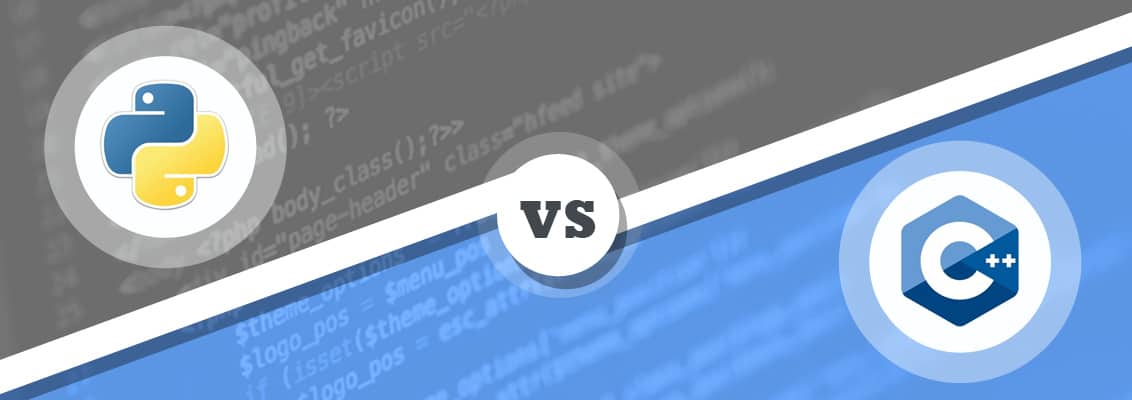
Programming languages - C++ vs Python
 By ITWorks
By ITWorks
In this article, you’ll learn about:
- Differences and similarities between Python vs C++
- Times when Python might be a better choice for a problem
The first two general-purpose programming languages are Python and C++ and the only similarity between these two is the fact that these are general-purpose programming languages.
C++
C++is one of the most powerful high-level programming languages developed in 1979 by Bjarne Stroustrup. It is used to develop complex systems where the hardware level coding requires. C++ is not portable, so you need to compile the C++ code every time if you want to run it on another machine. Famous companies using C++ are Uber technologies, Netflix, Spotify, Instagram.
Uses of C++:
- C++ is used to develop embedded systems like smartwatches, multimedia systems in automobiles, because for hardware-level coding, C++ is the first choice.
- In game development, C++ is the key programming language. It helps to create 3D Games or multiplayer. This is the reason why C++ is becoming more popular for game developers.
- To develop the servers and the high-performance microcontroller programs.
Python
Python was created in 1991 by Guido van Rossum and it was built with the motive to make its programming more straightforward than any programming language. It is the only programming language in the world that has the best code readability and Python code depends on the indentation apart from the complex structure. Famous companies using Python are Google, Lyft, Twitch, Telegram.
Uses of Python:
- In data analytics, to analyze the data and statistical information, because Python helps to manage a huge amount of data with an easy and cost-effective way.
- In machine learning and big data technologies, Python code is very compatible.
- Python language is very useful for developing complex web applications, because it offers a Django framework.
Which should you learn: Python vs. C++
Python is the easiest of them. Your choice eventually boils down to your interests.
Python is a good general purpose. If you like statistics, web development or something similar, you can go for Python.
C/C++ are good for playing with embedding systems, OS level programming, etc. They are also used extensively in high-end graphics software like video games.
Main differences Python vs C++:
-
Ease Of Learning C++ is complicated when it comes to learning. It has lots of predefined syntaxes and structure.
But on the other hand, Python is easier to learn.You can run the Python code by simply typing the name of the program with.py extension. -
Code Length
C++ is using the predefined structure to write the code in it, so whenever you do start coding in C++, you need to follow the structure. The code written in C++ becomes more lengthy than Python.
On the other hand, Python doesn’t have a predefined structure. Therefore, you can write simple code in Python and make your code much shorter. -
Speed
C++ is faster than Python. Python is slower because it is also written in C language. -
Memory Management
C++ doesn’t support garbage collection.Memory management in C++ allows you to allocate the memory to the new variables and also deallocate the memory from the variable when it is no longer required in the code. If you don’t do the same, then there are also the chances of memory leaks in C++.
On the other hand, there is no need to allocate and deallocate memory in Python. Because Python does it on its own, it does the memory management job with the memory allocation feature. -
Readability
C++ code readability is weak as compared with Python. The reason is C++ has a lot of syntaxes that are entirely overwhelming when it comes to readability.
On the other hand, Python has more English like syntax. It allows the indentation rules; thus, the programmer can keep track of every opened bracket.
Integration of C++ and Python
C++ and Python are excellent languages to learn and implement object-oriented programming, use powerful libraries to build neural networks, AI algorithms, image processing, using ROS, software development, to name just a few of their applications.
C++ gives you the deeper intuition of managing memory on your own, faster and efficient threading, caching and memory fetching.
Python simplifies coding complex algorithms for heavy applications such as AI or machine learning to just a few lines. Both the languages are extremely versatile.
Can Python replace C++?
Python already replaced C++ in contexts where performance, detailed resource management and being able to interface with hardware devices aren't that important: in a way, every pure Python program out there is a program that was not written in C++, because it made more sense to write it in Python.
But if Python has already replaced C++, the question is: Can replace C++ with Python?
It is very hard because all existing implementations of Python are either based on C/C++ or on something that is currently implemented using C/C++.
So you currently can't do without C/C++ and there's no sign you will able to do this in the near future.
Conclusions
Python is easy to learn language whereas C++ has a stiff learning curve as it has lots of predefined syntaxes and structure.
The use of C++ for major projects, such as systems programming, developing an operating system or working with a large-scale project may be better suited to the more complex nature of C++. C++ also allows a programmer to learn basic concepts such as memory management, pointers and experience coding without rich built-in libraries.
Python covers the range of programmers from beginners who rely on easy to learn programming languages with a gradual learning curve, to advanced programmers who need complex frameworks and complex functionality similar to a C-based language.
By including the ability to use a Web framework, such as Django, or an enhanced IDE, such as PyCharm, the flexibility of the language and what a programmer can do with it is endless.

